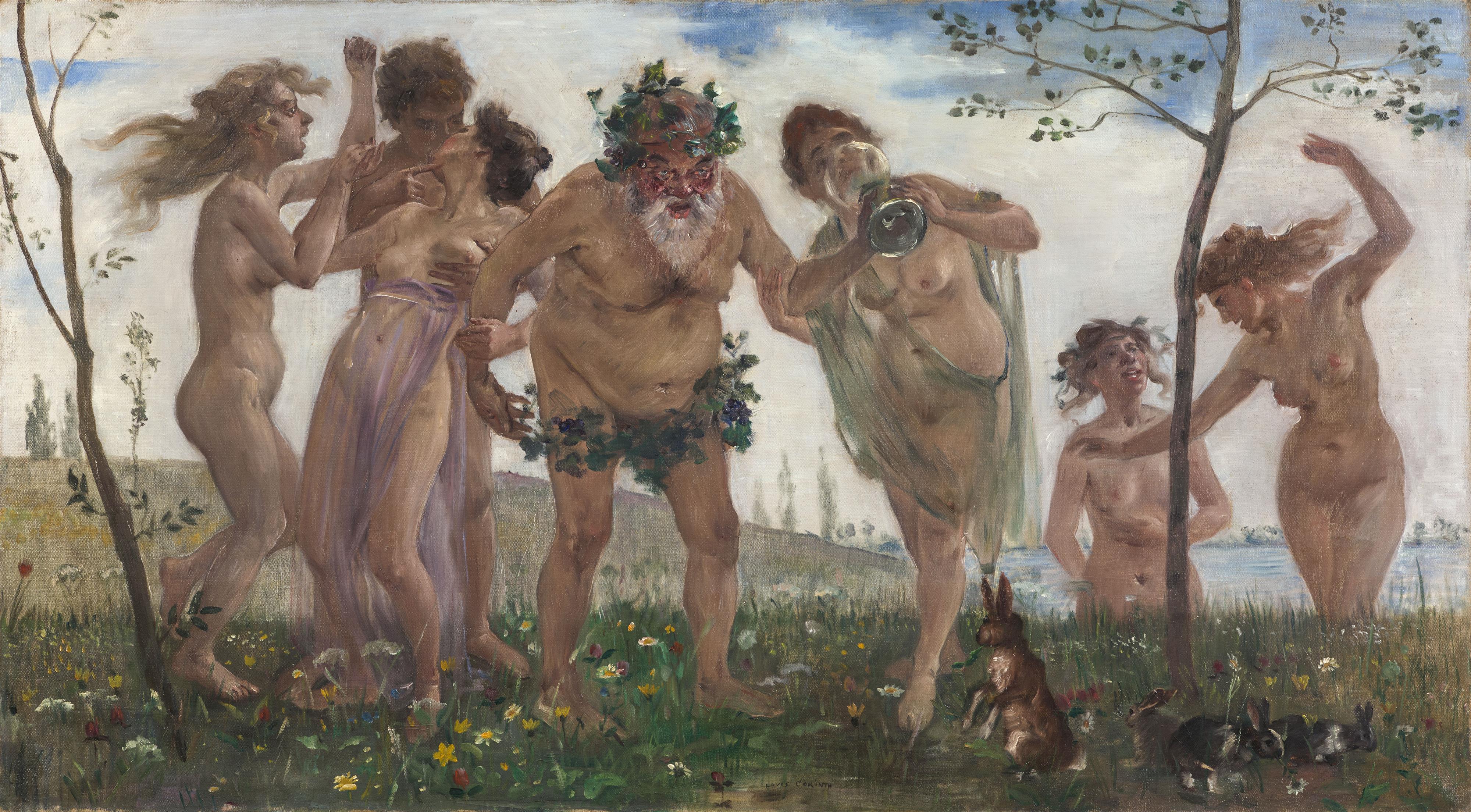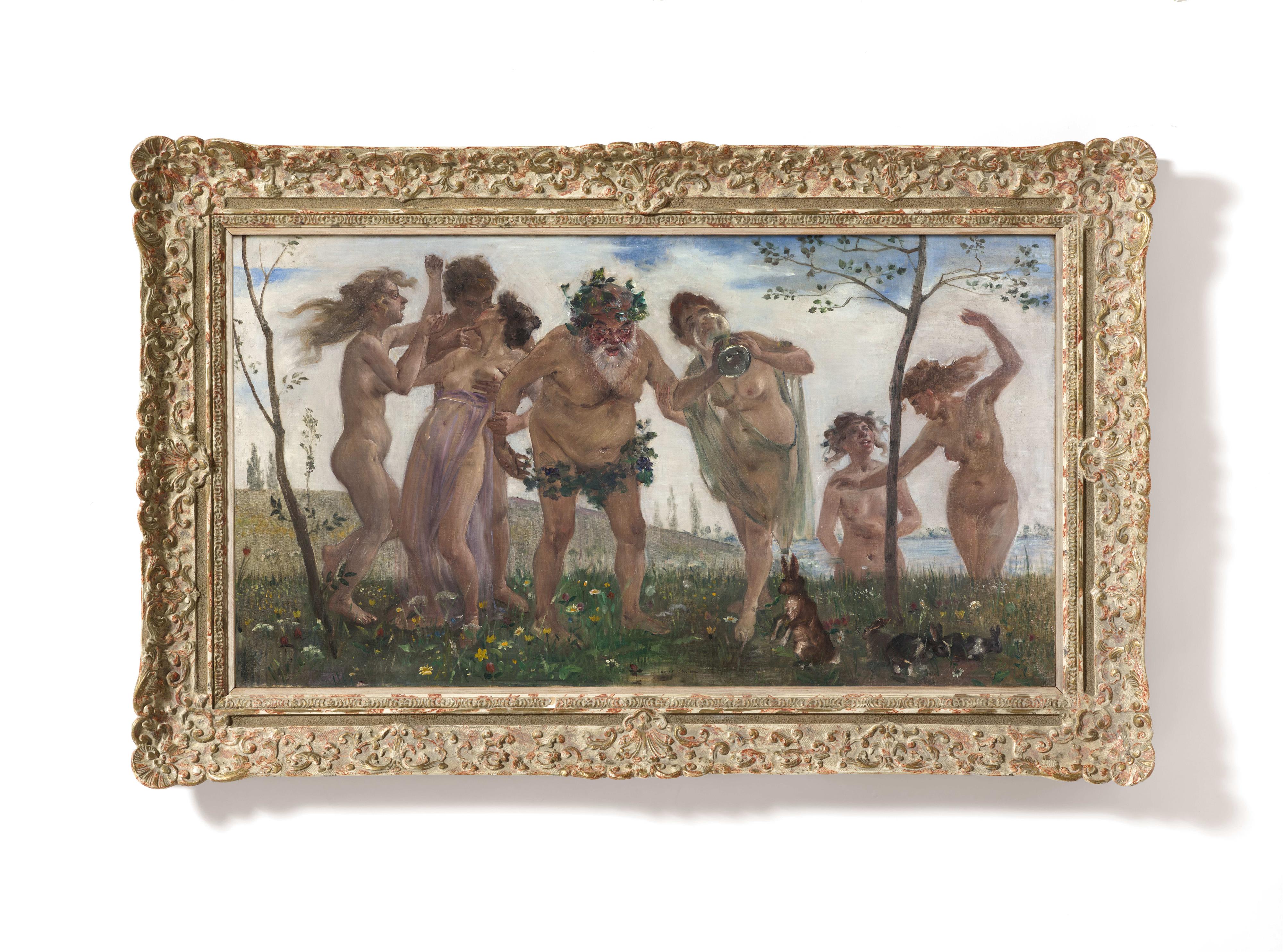Lovis Corinth
Bacchantenzug
1896
Oil on canvas. 55.5 x 100 cm. Framed. Signed 'LOVIS CORINTH' in black lower centre. - In very good condition with fresh colours. Small retouching in lower right area.
In the mid-1880s, over the course of his stay in Paris and studies at the Académie Julian, which was renowned among artists from outside France, Lovis Corinth learned from the salon painters Tony Robert-Fleury and Adolphe William Bouguereau how to convert important literary material into dramatically composed figural paintings. It is worth noting, that the painting of contemporary impressionists is not what interested Corinth. Instead, he sought official recognition from the prestigious tradition of the Parisian Salon, and in order to receive this, the painter turned to Biblical and mythological subjects at the beginning of his career. During this period, Corinth developed a thematic repertoire with which he would also repeatedly occupy himself in Munich and, later, Berlin.
The “Dionysian” decisively shaped Corinth’s painting in the 1890s. With its panoramic depiction of ecstatic young bacchants and maenads surrounding an older Bacchus, this delicate painting conveys the substratum of this important group of works. Viewers are surely permitted to consider certain autobiographical references here – Corinth’s own period in Munich was defined by festive binges and alcoholic excesses – but these paintings reveal a complex negotiation of history and the present: “The merging of art and life by means of a remythicisation is a special feature of Corinth. […] However, his irony in relating to the antique myths must always also be considered as well as his distance relative to the philhellenism that set the tone in the Wilhelmine period. Without a doubt, he does not wish – like Rubens, with his ‘Drunken Silenus’ – to provide a moralistic warning against excessive indulgence in wine and sensual intemperance, but instead to gaze upon the world of the ancient gods with a mocking eye. (Exh. cat. Lovis Corinth und die Geburt der Moderne, Musée d’Orsay. Paris/Museum der Bildenden Künste Leipzig/ Kunstforum Ostdeutsche Galerie Regensburg 2008/2009, p. 99).
There was scarcely a contemporary of Lovis Corinth who celebrated unconcealed, unrestrained ecstasy like him. The painting offered here visualises the Bacchanalia as a dream, at the high point of exhilaration. The term hedonism was still new in the late 19th century and Corinth’s painting thus seems all the more prophetic today.
Catalogue Raisonné
Berend-Corinth 130
Provenance
Galerie Caspari, Munich; Lindemann, Berlin; Crane Kalman Galleries, London; Kunstantiquariat Winterberg, Heidelberg; Galerie Thomas, Munich; U. Michael, Bremen; private collection, South Germany; W. Schuller Kunsthandel, Wertheim; Villa Grisebach, Berlin, auction 7 June 2002, lot 13; European private ownership
Exhibitions
Wuppertal 1999 (Von der Heydt-Museum), Lovis Corinth, cat. no. 8, p. 27 with full page col. illus.




